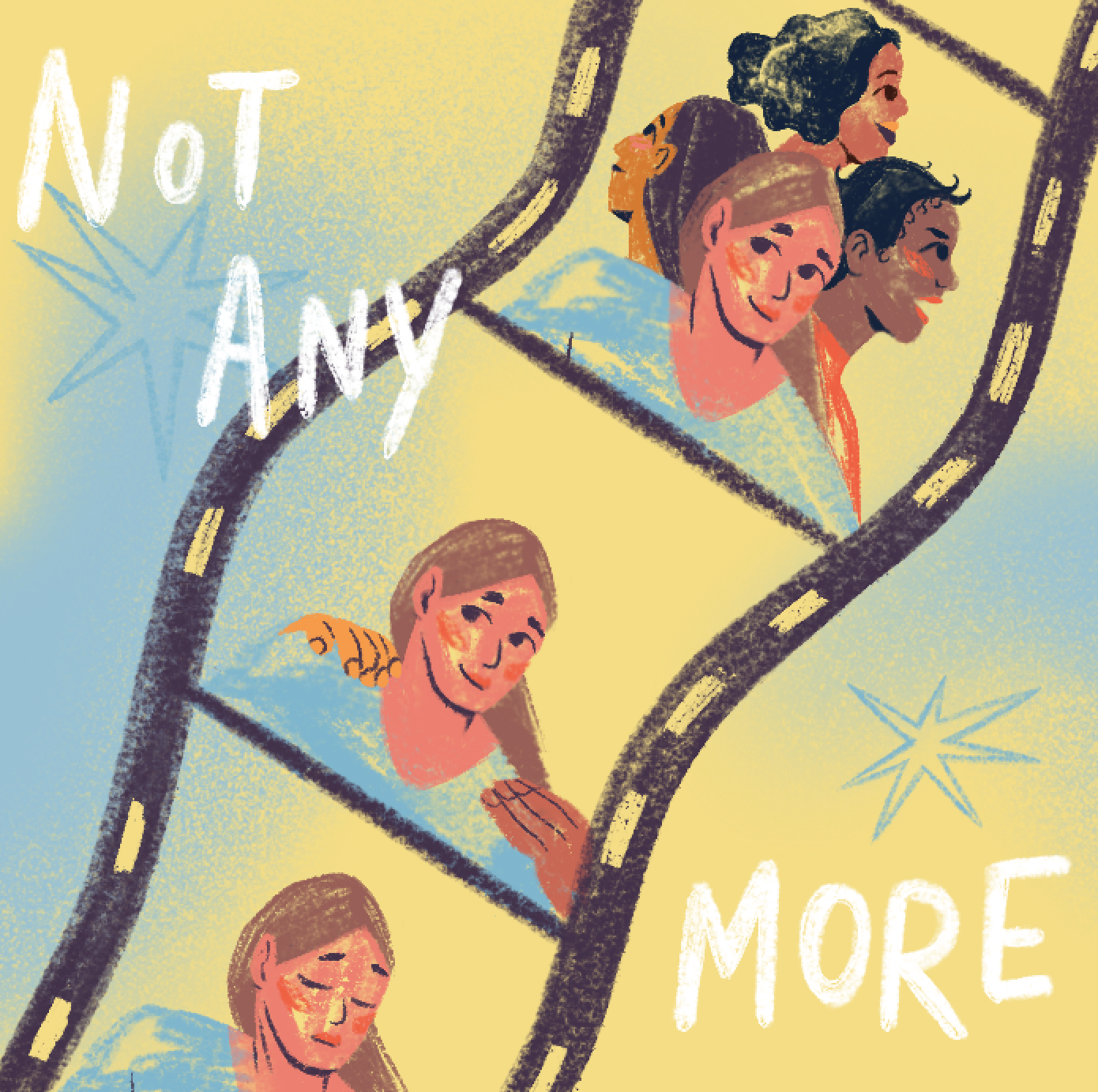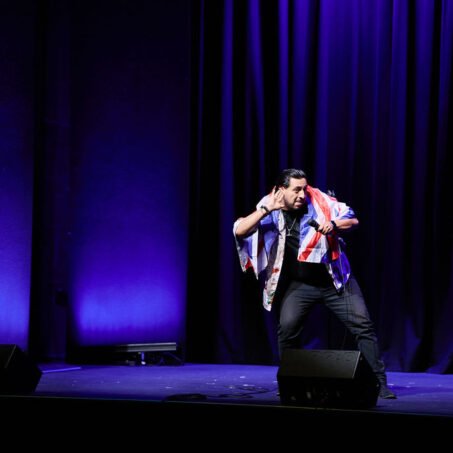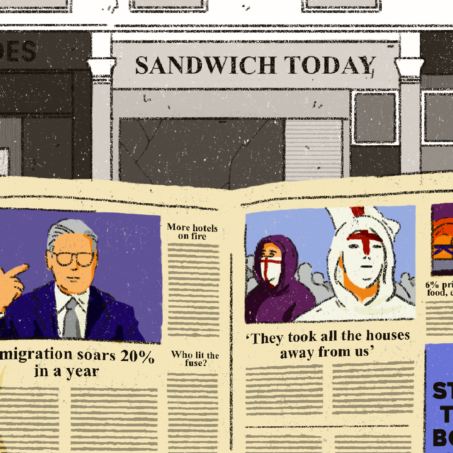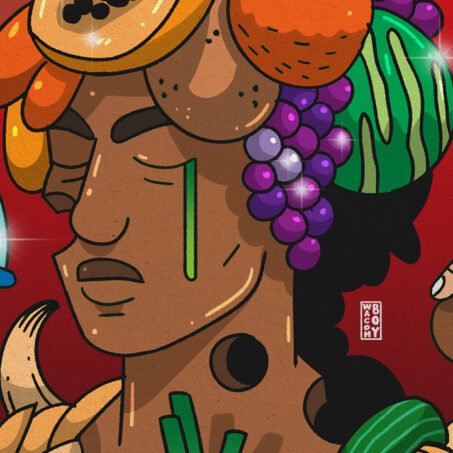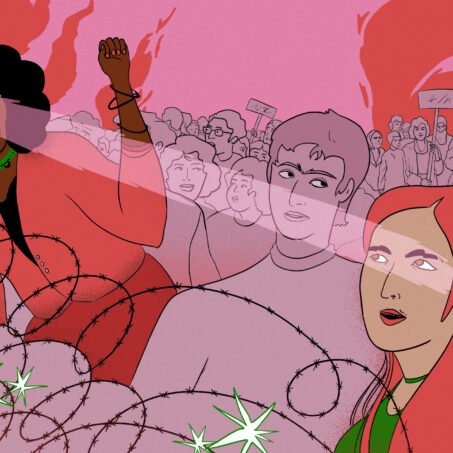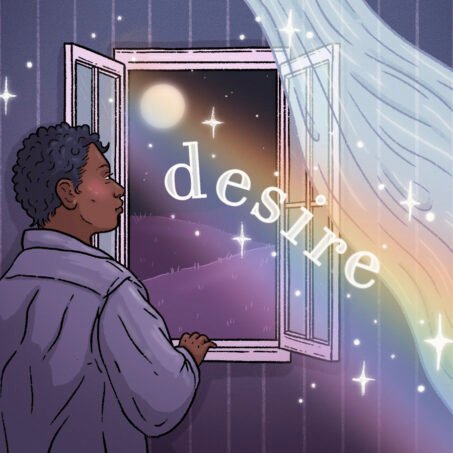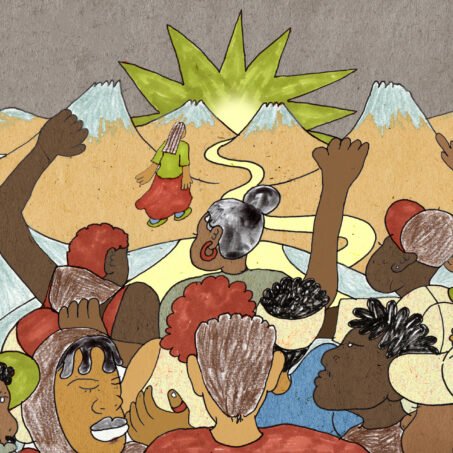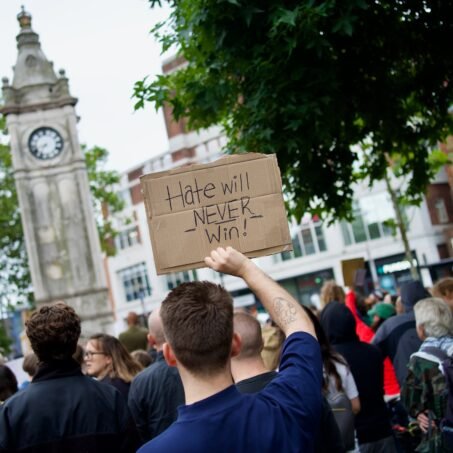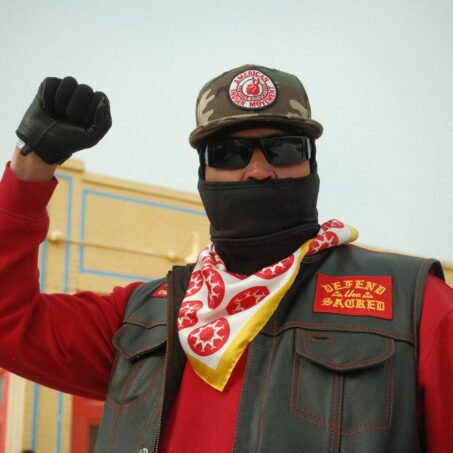In June 2017, Winnie Li’s searing debut novel, Dark Chapter, emerged onto the scene. Drawing from her brutal rape at the hands of a stranger, Winnie took us on a defiant journey of trauma – and of survival. At almost exactly the same time, allegations of Harvey Weinstein’s prolific crimes of sexual assault and abuse in the film industry rocked the world. Weinstein’s actions did not inform Dark Chapter; it existed independently of his abuses of power.
In fact for Winnie, or anyone who has worked in the film industry, one of the most shocking parts of the #MeToo movement unfolding was that people were surprised by its existence in the first place. Beyond the excitement of making films; of the lights, the camera, the glamour and the action, there is a sinister undertone tainting its reality.
And now, some five years later, with her new novel Complicit, Winnie has set out to write a book which will shine a light on the complexities of working in the film industry.
But even more specifically, this text follows a young woman of colour who wears her ambition and lack of privilege on the same sleeve; and discusses how she fights to survive in a system that was never designed for her.
Into the edit
Complicit asks complex questions about ownership, authenticity, family, power and trust.
Since its publication, it has already been featured as the Editors’ Choice in The New York Times Book Review and recommended in The Sunday Times Magazine ‘Books To Live By’. It is a tour de force and when I sit down with Winnie Li to talk it through, I quickly realise why: its author is too.
By her own admission, Winnie’s protagonist Sarah Lai, a 39 year old lecturer, used to be a big deal. She worked for a rising star production company as they had their first big break. Sarah, a talented and hungry young producer born to immigrant parents, was instrumental in the making of the film, even casting Hollywood’s hottest talent.
But over time, the inexplicable happened and Sarah leaves the industry, trading the red carpets of Cannes for dusty classrooms teaching film to unmotivated students. Then, on the cusp of the #MeToo movement taking off, she receives a call from a New York Times reporter who wants to talk to her about her time in the industry.
Questions of morality – or lack thereof – thrive in the world of Complicit. Winnie tells me: “I wanted to really question the idea of how we frame things that are out of shot.” How do we sift through the murky complexities of abuse and power dynamics to ask ourselves the simple question: who is to blame?
Sarah’s terms of references are filmic; takes and edits and angles. For Winnie, this was important. “The question of editing and framing is really central to how we understand our experiences and how we understand this narrative that we’re now trying to challenge in a more public way,” she explains.
As Winnie draws us in to see the world through Sarah’s eyes, I too begin to wonder about how we frame things, what we leave out of shot. Even as I write these words I will inevitably leave out certain elements – the film on the cutting room floor – and write others into existence.
Right from the start of the novel, Sarah tells us that she is leaving things out – and yet Winnie doesn’t pass judgement on her, in either a positive or negative sense. She simply presents us with the reality of a system that is broken.
Despite her admission of omission, something in me still trusts Sarah. As Winnie says: “I think we always want to root for the person who fights against all odds,” and certainly with Sarah’s story we are rooting for her as the underdog.
Winnie encourages us to challenge our conceptions of trust, directly asking her reader: what makes a character believable? A lot of this comes down to voices – and lurking just underneath voices – power. Do we actually want power, or do we just want to feel like we are valued?
Voices matter. Names matter. Credits matter – and as someone working in the industry who has played nice one time too many, I know the personal pain of allowing individuals to take credit for roles in films that they do not deserve.
So I feel it in my gut that Sarah is undervalued for her most valuable contributions. She is an artist; she sees the film in front of her and she wants to play her part.
Whilst power dynamics seep through every single word of Complicit, I think what Winnie is actually doing is disrupting the very idea of what power looks like in the film industry. It has traditionally been very hierarchical, male-centric and white. Winnie suggests a world where a woman of colour could find herself running the show and, against all odds, for a short time at least, find herself thriving.
Through Sarah, but also through exposing the lowest of the low in the Weinstein-esque character Hugo North, Winnie encourages us to imagine an alternative. What if we could work in the industry and not have to think about the predators and their casting couch, or if we could work together and celebrate each other’s talents instead of trying to simply leverage situations for our benefit?
How to change the system
Workplaces should not inherently be set up for the likes of Weinstein; and nor do they have to be.
Through Winnie’s creation, I begin to see a world where they aren’t. It makes me think of my own personal mission as founder of Kusini Productions, a production company created to create opportunities, change the narrative and champion voices of Black women and girls. I pride myself on making my sets safe and inclusive. I care about every single actor and crew member feeling as though they matter; being looked after.

Join our mailing list
Sign up for shado's picks of the week! Dropping in your inbox every Friday, we share news from inside shado + out, plus job listings, event recommendations and actions ✊
Sign up for shado's picks of the week! Dropping in your inbox every Friday, we share news from inside shado + out, plus job listings, event recommendations and actions ✊
I think small, female-founded, grassroots production companies like mine and others such as Candid Broads, Track Films and Backscatter Productions are seeing our reputations grow. We are being approached more and more; seen as the future. As I have grown in confidence, I have started to call out the “producers” and the “directors” who care more about their social media following or their own ego than they do about making inclusive, groundbreaking work. I won’t let myself be talked over any longer.
The feminist movement must be intergenerational
I speak with Winnie about the importance of intergenerational dialogue – and particularly intergenerational dialogue between women. In her words: “it’s a really vital part of the feminist movement which often isn’t there.”
And she’s right. I see among my own generation that we are finding our voices and speaking our truth. We read the likes of bell hooks, Simone de Beauvoir and Audre Lorde, and yet often when we come to find our own seat at the table, the door has been closed before we can get there.
Winnie and I both agree vehemently on the need to respect the women who went before us, pioneering and making way for us to come through but we stop, unable to answer the ultimate question: how many of these women pull the ladder up behind them?
How many of them actually tried to bring about structural change to make the film industry a more welcoming workplace? We all have a responsibility here. There is no lasting change without each of us playing our part.

Resisting burnout and exploitation
I admire Winnie for her unflinching portrayal of the difficulty of this. Working in film is exhausting, challenging and relentless. For all of the joys and exhilarating highs, we do not talk enough about the lows.
Winnie perfectly captures Sarah’s world and the heady mix of glamour combined with mundanity, insecurity and anxiety. The relentless emails and the never shutting off. I cannot remember the last time I actually took a holiday. I am always reachable, always on, always at the end of yet another email or WhatsApp notification coming through.
Winnie says that “we accept this when we’re young. At the start of our careers we are willing to do a lot of intense work for very little – it is sold as a rite of passage, a means of getting a foot in the door.”
And yet, when you think about it; Hollywood does not need our free labour. Hollywood makes enough money to pay people fairly for their contributions. Why then are so many people breaking themselves down to simply poke their head above the parapet? Why are they putting up with egos, behaviours and worse; the derogatory behaviour and the sexual abuse of young women?
Inevitably this falls on the shoulders of those who are not from the film industries or families with money. It falls on those like Sarah, a second generation immigrant whose parents run a Chinese restaurant in Brooklyn; on those who do not have a safety net to fall back on. Winnie and I discuss a recent article in the Defector which bravely investigates the nepotism that many in our industry still thrive from.
I feel proud to be part of that change on my sets, working with those who were never from the traditional backgrounds, and could never have dreamt of being on a film set. I am prouder still to work with a mental health and wellbeing facilitator on all of my film sets. It isn’t radical; it isn’t even outrageously expensive. It is just a simple, practical and essential solution to a rapidly growing problem.
Finding healing and hope
Finally, we talk about healing. Where is the hope? Why do we make films, or write, or share our stories? For Winnie, sharing stories will always serve a purpose, as long as it is on the terms of the survivor. She has an in-progress PHD which looks at how rape survivors engage with the media as a form of activism. It’s complicated. Often survivors don’t actually have the power to tell the story in a public way – or at least not in the way they want to tell it. Ultimately they have to play ball with what the media themselves want.
Winnie makes me truly think for the first time of the utter bravery of the women who first spoke out (or any woman who has ever spoken out) about abuse they have faced. To speak “me too” into a void of silent judgement is a blazingly defiant act of bravery.
We speak about those who might want to write their own story and take back some semblance of control; those who might wish to declare “me too” but do not know how to say it, or who to say it to. I feel my own throat tighten, silenced by the power of the generations of women who have had their dignity stolen from them and then dared to talk back. This for me cuts straight to the heart of what I hold to be one of the greatest strengths of Winnie’s writing.
She doesn’t pretend that she can overturn all of our pre-existing societal structures with one novel. However, what she does is provide an alternative vision for how things could look if we dared to let them. For me, Complicit is a book that speaks to anyone who feels like their voice was taken from them – a blueprint for how they might choose to speak back – if they might do so. If writing Dark Chapter was a way of healing, then writing Complicit is something different: a call to arms.
Power through speaking out
Power comes into play again, as for Winnie, the wider goal of truth being shared overrides all – and we see this struggle play out in Sarah’s will-she/won’t-she go public after keeping her story secret for so many years. We also speak about professional and educational privilege.
Writing a book, making a film – even writing this piece – to be able to tell a story about this kind of abuse and injustice requires a certain level of privilege. It is about agency and being able to bring your own freedom and storytelling instincts to shaping the story that you want to tell. Not everybody is in a position to do this.
I ask Winnie about this, for I feel in my heart that our conversation is one which is borne from inclusivity. Neither of us are interested in inhabiting a world where only the privileged few can thrive. We speak about those who don’t feel able to share their story; for any of the multitude of reasons that someone might be inhibited. How can they still find their voice?
For Winnie, the answer is very simple, and it lies in the power of writing – even to yourself. “The sheer act of picking up a pen and expressing yourself and acknowledging your feelings is an empowering action that we can all take. Just start with words; your own words – just for you if you want them to be. Find those words and the creativity and healing will follow.”
I end our call by asking Winnie what she hopes people will take away from Complicit. She points me to the very first page of her novel and its dedication:
“To all those whose lives were affected, whose careers were diverted, whose voices went unheard.”
But then, we dive deeper still. Winnie tells me she’s writing for “all those women who didn’t stay in the film industry, who never got to contribute their talents or be recognised or help make a film and ended up leaving because of people like Weinstein.” Winnie is fighting to reclaim the narrative for those that we lost because of people like him.
And, having spent the last hour speaking with her, I feel three words come to my mind: Not. Any. More.
I breathe out, sit taller, feeling in my heart a collective of women who might now feel seen and heard – might even feel a little less alone because Winnie Li has walked before them. I feel the strength and the fury of an army of women who are not lost and never silent. They will never be silenced. Not any more. They are free.
What can you do?
Here are some more resources if you want to keep up the good fight:
Books on the film industry
- Women Vs Hollywood: The Fall and Rise of Women in Film by Helen O’Hara
Film Festival
Organisations
Podcast
Song
